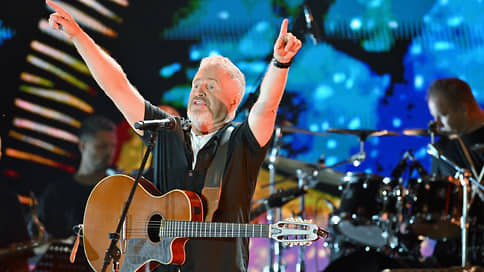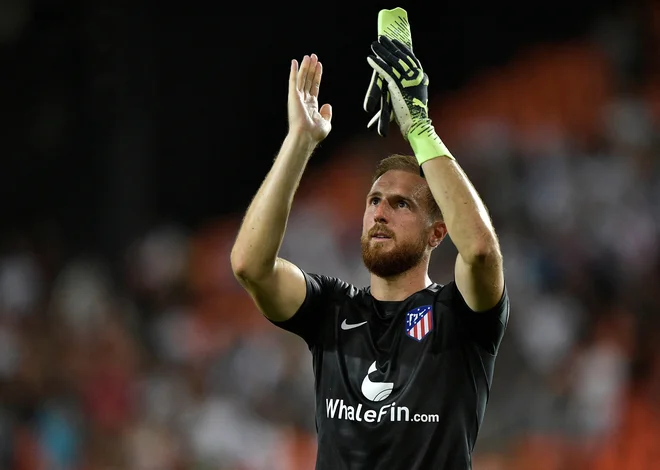Even in the council chamber they can no longer ignore the war violence in Gaza
/s3/static.nrc.nl/images/gn4/stripped/data132655613-6500d3.jpg)
At the current affairs council in the Rotterdam town hall, the most sensitive agenda item on Thursday was the last. This time it was a container ship in the port of Rotterdam, with, according to activists, Israeli weapon components on board, that the war violence entered the council chamber in the Gaza Strip.
« If this cabinet chooses to look away, that does not mean that we as a city council should do that too, » said councilor Serkan Soytekin (think).
Sarah Reitema (PvdA): « Whatever your role is: pronouncing yourself against injustice is the least you can do. »
A « Totaal Kuldebat, » Simon Ceulemans, chairman of the party of Liveable Rotterdam, who repeated what the biggest council group brings to each Gaza debate: that council and college are concerned to worry about « international problems to the city ».
Exception
A week earlier, a narrow majority of the city council spoke out in a motion against « human rights violations in Gaza ». With that, Rotterdam joined a growing group of municipalities that feels called to make an exception to the habit not to be expressed about international issues.
A number of those municipalities even emphatically turn against the cabinet’s foreign policy. A Call from Mayor Femke Halsema (GroenLinks) of Amsterdam to the cabinet to call Israel to order, in cities throughout the country could count on imitation, according to News hour After a tour.
Read also
In Gaza there is genocidal violence, says the director of the NIOD
A small selection of the last few days: The Hague wants the cabinet to condemn the action of Israel. In Coevorden, the local parliament calls on the college to also take a position. From now on, Utrecht must speak of genocide from the city council. That was seen in Meijerijstad and soon a similar proposal came.
Nine hundred words
Diemen did not go ice cream in one night. In one carefully prepared statement From more than nine hundred words, the college explained this week why it feels a « moral duty » to express itself and to call on the cabinet to « more clearly condemn military actions that demand a disproportionate number of civilian victims. »
« It is a very sensitive story, » said Mayor Erik Boog (D66). « We wanted to respond in a balanced way, instead of quickly placing ad hoc a reaction. It is a complex issue with an enormous history and all kinds of perspectives. Disapping that with three sentences, we found not wise. »
According to Boog, the conflict has « direct consequence for our residents ». « Diemen is a very diverse municipality, we know how strong it lives. A municipal administration has the duty to have an eye for that. We also have a duty to stand up for fundamental values. And human rights do not stop at national or municipal boundaries. »
In Westervoort in Gelderland, the partyless mayor Arend van Hout wants the call that he made this week in a personal title to the cabinet « not to make it bigger than it ». He could no longer stand still. « It goes from bad to worse, » he says with reference to bombing of hospitals and the use of hunger as a weapon.
The dissatisfaction with the Israel position of the Schoof cabinet is increasing steadily. Only 15 percent of Dutch people support Foreign Affairs Policy
No, he says: the foreign policy is not a matter for local administrators. « It would be a bit tiring if I, as a mayor, were about an international issue every week. But what happens here, defies every description and is out of all proportions. I couldn’t keep my mouth left. »
Valve
The dissatisfaction with the Israel position of the Schoof cabinet is increasing steadily. Only 15 percent of Dutch people support Foreign Affairs Policy, while at the start of the war that was still 29 percent, it was recently evident from the Fourth Gaza research from the Ipsos I & O level agency.
According to Geerten Boogaard, professor of decentralized authorities at Leiden University, the social unease that accompanies this, inevitably continues into the council chamber. He speaks of a « venti function. » « The municipality distils things that play in society and then moves along. »
According to him, it often happens that the line set by The Hague is deviated from at the local level. « I would find it crazy if that didn’t happen. That would suggest that a municipality is not a fully -fledged democracy. That local authorities are not sufficiently decentralized to have their own view. »
Because, says the professor, municipalities are not ‘branches of the central government’. « If a regional office of the UWV in Noord-Holland says: we also want to find something, it would be stranger than if the Amsterdam City Council has an opinion about this. And if there is enough reason for it, that opinion in a statement is expressed. »
Crucifixion
It is ‘very exceptional’ that local governments are involved in international affairs, emphasizes Pieter Jeroense of VNG International, who will be awarded a PhD, promoting for the internationalization of Dutch municipalities. According to him, municipalities know ‘very well’ that foreign politics is not their domain.
Yet there are examples. For example, municipalities took the position at the highlight of the Cold War against the station of cruise missiles. According to Jeroense, about a hundred municipalities declared ‘nuclear weapon -free’. Hellevoetsluis even adjusted the local municipal regulation. The empire went a step too far.
In the same 1980s it was about the apartheid regime in South Africa. Some municipalities called on the cabinet to express themselves, others took measures themselves: Hilversum did not want to do business with companies that are active in South Africa and Deventer refused to purchase products from that country.
In recent decades, municipalities have started to focus more, albeit with economic glasses. If you look beyond national borders, according to Jeroense it almost always serves the self -interest. « Every international policy plan starts with: we do this to get something for our own residents or companies. »
Sensitivity
The fact that it is now about Gaza in many a town hall shows how much the conflict has its effect locally. In particular, the cities, where involvement among residents is often greater, simply cannot ignore it. Sometimes it stays with a motion in the city council, elsewhere the mayor or the entire college also speaks out.
The sensitivity of the conflict means that municipalities and administrators weigh their words, often by drawing attention to human suffering. Kerkrade expresses « no judgment on geopolitical relationships, » but wants to express itself « for humanity. » Diemen is talking about « recognition of suffering on all sides. »
After that often a call for tolerance comes. For example, Groningen calls on its inhabitants, « whatever disagreements there are to exist, to continue to respect each other ». Gouda specifically addresses the concerns of Jewish residents, who are sometimes « addressed about violence for which they are not responsible ».
There are also municipalities that consciously choose not to go as far as Halsema. « I don’t want to end up in that discussion, » said the mayor Van den Bosch according to it Brabants Dagblad. Venlo does not consider a « position intake and a possibly associated call » as its role, just like Zwolle and Ede, for example.
It is an illusion to be able to do well for everyone, the mayor of Diemen knows. « For one person, a statement never goes far enough. The other says: ridiculous that you are concerned with this. »
Diplomatic
What impact it will have, finds PhD student Pieter Jeroense difficult to estimate. He does see, also through demonstrations such as Last Sunday in The Haguethe pressure for the cabinet runs out. « If one hundred thousand people take to the streets, if mayors express themselves on behalf of so many residents, that is a powerful signal. »
Professor Geerten Boogaard points out that Foreign Minister Caspar Veldkamp has indicated that he will call Halsema in response to her call. « He could also have said: good luck with it. The fact that he says he wants to pick up the phone in public statements is diplomatic language before he takes it seriously. »
What the mayors who NRC Speaked say: don’t see it as a political expression « I didn’t want to choose a party in any way, » said Wim Hillenaar (CDA) of Maastricht. « This is about war law and humanitarian rules. These are basic things that should apply to friend and freedom. »
« It would be crazy if you as a mayor lose your neutral position by only referring to humanitarian war law, » says Van Hout, mayor of Westervoort. « In what situation would you be able to pronounce as a mayor? If this is not a reason, there will be little left. »

:format(webp)/s3/static.nrc.nl/images/gn4/stripped/data120593855-12eb08.jpg)
/s3/static.nrc.nl/images/gn4/data132693888-383c68.jpg)
/s3/static.nrc.nl/images/gn4/data132793177-d1910c.jpg)



